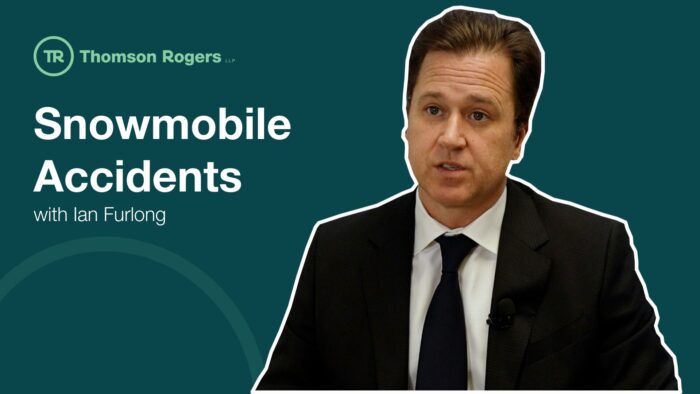DACs and Section 24 Assessments
Author(s): David R. Neill
September 1, 2002
There are several legislative and regulatory changes concerning DACs and Section 24 assessments which have been proposed by the Automotive Insurance Review Committee. The proposal which ignited most of the discussion in our breakout group concerned the recommendation that less serious injuries (presumably of the soft tissue variety), will be governed by guidelines issued by the Superintendent of Financial Services and developed by a committee assembled, as required. If the injuries fall within these proposed guidelines, the details of which have not been made known, no treatment plan, no independent medical examination and no DAC examination will be conducted.
The two issues most frequently raised in our discussions can be summarized as follows:
- what injuries will be determined to be “inside of the box” and therefore governed by the guidelines?
- who is to be included in the “committee as assembled”, to establish the guidelines?
It was the consensus of the break-out group that Health Care Professionals should be invited to assist in the development of clear criteria relating to the assessment and treatment required for those injuries that will fall within the guidelines.
It was generally agreed that in some cases the elimination of Section 24 assessments for injuries falling within the treatment guidelines, will not lead to the most responsible assessment, thereby rendering the proposed treatment ineffective.
In more serious cases, i.e. those accident victims who have suffered injuries falling “outside of the box”, it is proposed that disputes involving treatment and assessments under $1,500.00, and not governed by the guidelines, go directly to mediation. It was the concern of the break-out group that mediation may not be the most effective dispute resolution mechanism to resolve disputes of this sort. It was suggested that in such a situation the innocent accident victim deserves an impartial and timely decision rather than the uncertainty of mediation. This proposed change to refer to mediation disputes over treatment and assessments of injuries falling outside of the guidelines was thought to be unworkable and that a mechanism more responsive to the immediate needs of the insured was required.
It would appear that the proposed changes add yet another category of injury, the assessment and treatment of which will be governed by guidelines yet to be developed. Appropriate assessment guidelines and treatment protocols will likely result in cost saving to the insurer which can be passed along to the general public by way of lower auto insurance premiums. It is, therefore, imperative that health care professionals from all of the regulated health professions are consulted before the guidelines are implemented.
Other proposed amendments include:
- The establishment of maximum DAC fees, after consultation with the insurance industry and DAC operators.
- DACs would be prohibited from using assessors who conduct other medical/legal exams on auto accident victims. An exception may apply if there is a shortage of qualified assessors. Short of the exception, this proposal begs the question of who will conduct these examinations?
- DAC assessments are to be received by the court and arbitrators as prima facie evidence. Therefore, unless the evidence which is used to support the DAC opinion is disproved or rebutted, the DAC opinion will be accepted. Should the DAC opinion be given more weight than opinions from treating physicians?
- Membership on the Minister’s DAC Committee to be restricted to individuals who do not work or own a DAC, except a representative from the Association of Designated Assessment Centres will serve on the Committee.
Share this





